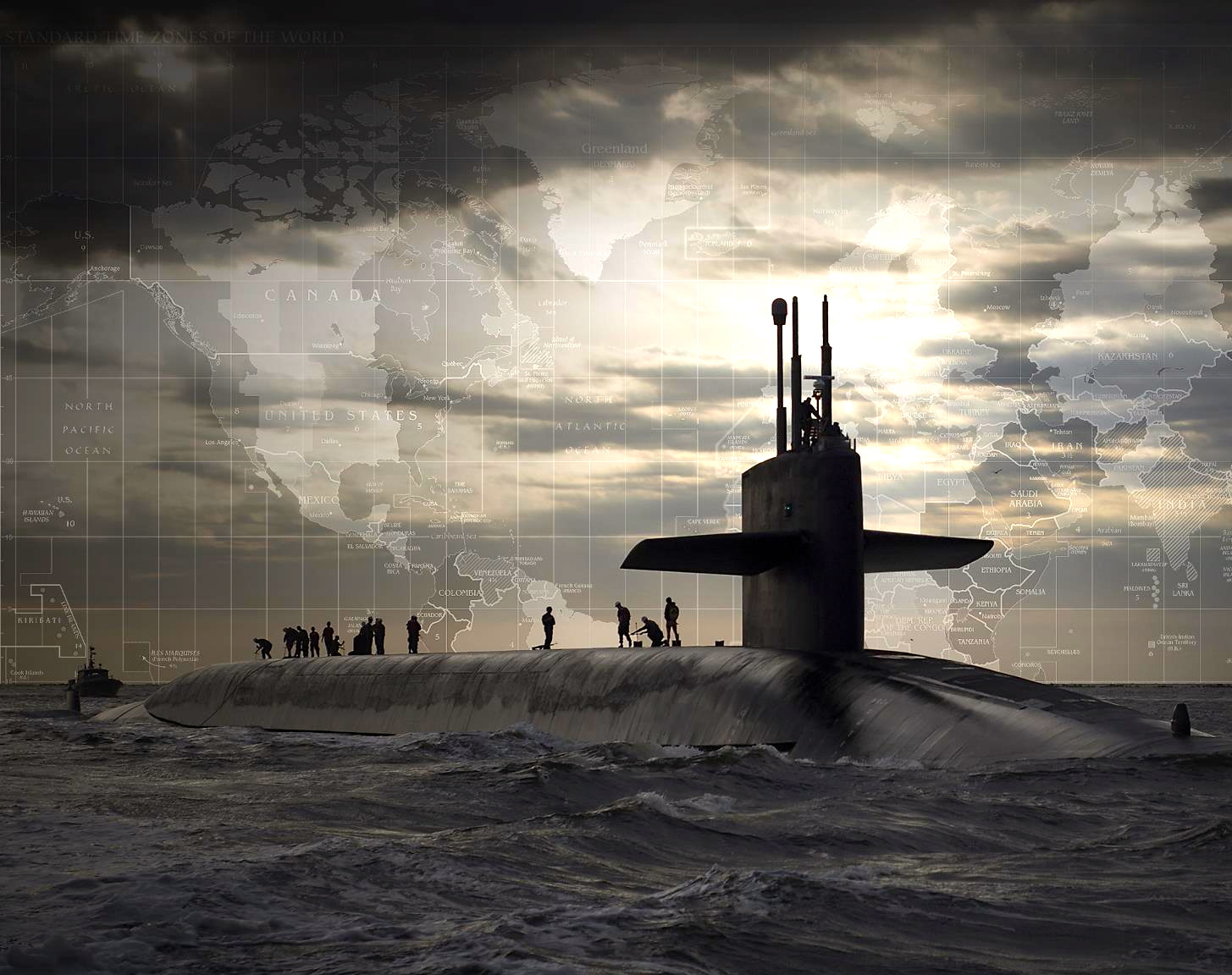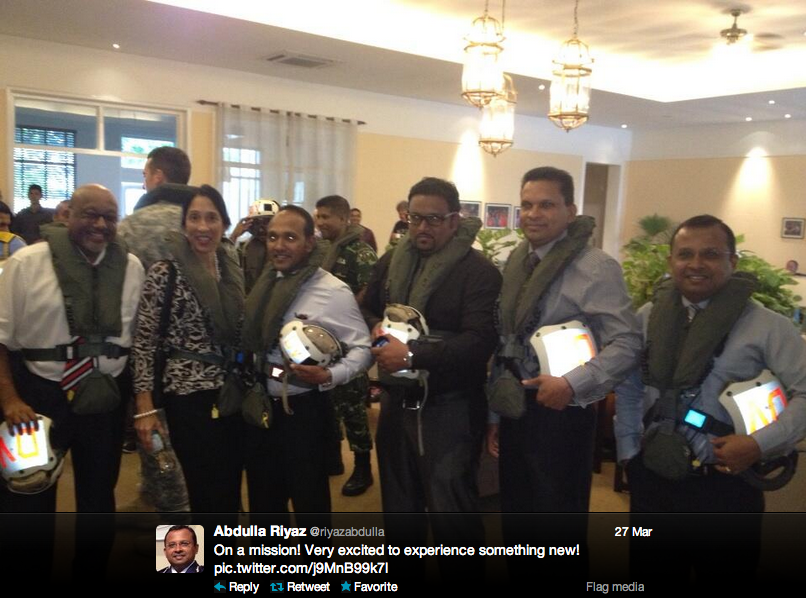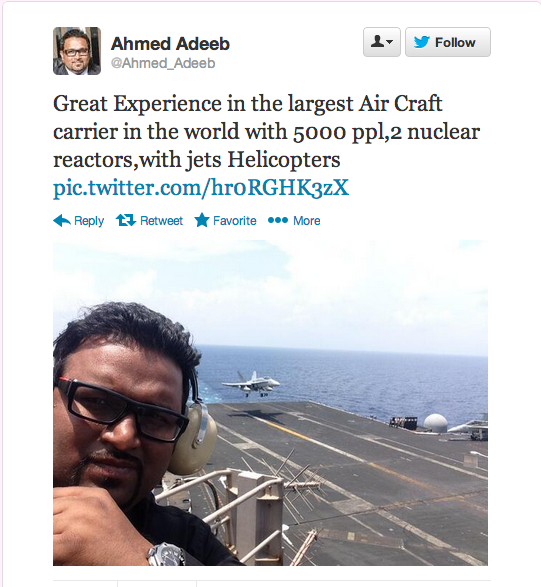A US military base in the Maldives?
by Azra Naseem
The current government appears ready to sign a Status of Forces Agreement (SOFA) with the United States allowing it to establish a military base in the Maldives.
According to the draft agreement, which I have seen, the Maldives will give the US unfettered access to, and use of, not just the military facility (or facilities) to be established but also all Maldivian aerial ports and seaports for whatever purpose it wants.
The designated area(s) [listed in an annex I have not seen] will be sealed off for ‘exclusive use by the United States forces’, which will have the authority to secure ‘the vicinity’ around the island(s) in whatever way the US deems is necessary for safety of Americans.
US personnel based in the Maldives will have diplomatic privileges, exemptions and immunities equivalent to that offered by the Vienna Convention.
According to the SOFA, the Maldives will authorise ‘the United States to exercise criminal jurisdiction over United States personnel while in the Republic of Maldives’. This means all US personnel will be wholly exempt from prosecution, whatever the offence they commit in the Maldives.
On duty, US personnel can be armed and in uniform. They will be free to enter and leave the Maldives as they wish; and will be exempt from all taxes or similar charges. They will be free to export/import anything they want—including any personal property [which they decide] are connected to their activities at the base. None of it will be subject to inspection or charges.
US vehicles and vessels will be free to move within all Maldivian territory and territorial seas as they wish. They, nor any US aircraft, will be subject to any sort of charge. No US aircraft or vessel can be boarded and inspected.
The base can be used for just about anything the US wants. According to the SOFA, all Maldivian ports and the designated facilities and areas can be used for anything from transit and training to humanitarian activities and ‘such other purposes’ as the Maldives and US agree.
If the US wants, it is free to construct, alter and improve various structures. The SOFA says it does not intend to do anything of the sort in the Maldives. Nevertheless, whatever service or job the US needs done, it is free to hire its own contractors to do so.
With few exceptions, all privileges and exemptions given to the military personnel will also be extended to any contractors that the US hires for any kind of work on the base.
The designated area(s) are to be given to the United States for ten years to begin with, and will continue in force automatically unless the SOFA is terminated by one party with one year’s notice.
Any dispute must be settled exclusively by negotiation between the two parties (perhaps having learnt a valuable lesson from the GMR saga). No court of law, international or national, or any third party for that matter, can be involved.
The agreement is to enter into effect from the time ‘all internal requirements…have been satisfied’.
Domestic requirements
Article 77(3) of the 2008 Maldives Constitution stipulates that:
No part of the territory of the Maldives shall be given to a foreign person or party for a military purpose for any period without the approval of the People’s Majlis.
Before the SOFA can be sent to Majlis [Parliament] for approval, however, it must first be endorsed by the Attorney General.
This appears to be the spot where things got a bit sticky for the US-Maldives SOFA; and is perhaps one of the reasons why it has not yet made it to the Majlis.
According to sources within the corridors of power, negotiations with the US about establishing a base did not involve any of the major political parties in the governing coalition.
Significantly, former ruler Maumoon Abdul Gayoom’s PPM—the largest political party after the opposition MDP and part of ‘the ruling coalition‘—appear to have been excluded from the US-Maldives negotiations on establishing the base.
“That’s the most interesting thing, PPM didn’t know about this,” said a senior political insider who wishes to remain anonymous.
Although officially unaffiliated with any political party, it is widely known that Azima Shukoor, appointed Attorney General after 7 February 2012, is deep within the PPM’s inner core. What the PPM does not endorse, Azima will not.
On 10 April Azima was relieved of her Attorney General duties and transfered to the post of Minister of Gender, Family and Human Rights.
Speculation among the few yet aware of the SOFA is that Azima was removed because of her unwillingness to endorse the agreement, which cannot go ahead without the Attorney General’s approval.
In Azima’s place, Waheed appointed Aishath Bishama, a young high-flier unlikely to disagree with higher authorities.
US interests
By 2020, the Pentagon expects to have 60 percent of its naval assets in Asia
The United States has over a 1000 military bases across the world. For most native populations, the presence of the forces create controversy or unrest and discontent, rather than security. There is ongoing opposition to these US military bases ‘stretched like tentacles across the globe‘.
The most notorious of the US bases is Guantanamo Bay in Cuba with its extra-legal prisons, illegal detainees and torture. As it became widely known as the War on Terror continued, Guantanamo is not the only US military base to be used for illegal purposes during the war.
The island of Diego Garcia with its US base, called ‘Camp Justice’, was used for similar purposes–extraordinary rendition, extra-legal detention of ‘high-value detainees’ and most likely torture.
Diego Garcia is a British Indian Ocean Territory. [The Maldives has its own bone to pick with the UK over the island.]
‘To lease the base to the US in the 1970s, the British evicted the island’s 1800 population who are continuing their fight for the right to return through the various British courts.
The agreement between the US and the UK allowing the US military base on the island of Diego Garcia will expire in December 2016 unless the two parties agree on an extension by December 2014.
Losing Diego Garcia would be a significant blow to the US, especially in light of the recent ‘Asia pivot‘ in its foreign policy. A base in the Maldives, where the southern most island is only just over 700km from Diego Garcia, would be ideal.
The Asia pivot
The US announced the Asia Pivot in its foreign policy in November 2011. Although the US denies that the change of policy is aimed at containment of the rising China, many—most of all China–remain unconvinced.
What cannot be denied is that with the pivot has come the increased movement of US naval assets to Asia, which currently hosts fifty percent of it. This will be increased to 60 percent by 2020. Media reports speak of a resurgence of U.S. warships, planes and personnel in the Philippines, Australia and other parts of the region since. Several thousand more troops are also due to be added to the over 300,000 already at the various bases in Asia.
Clearly, a military base in the Maldives would be quite the prize for both China and the US. Both countries would, no doubt, go to great lengths to acquire one. Towards the end of last year, the Maldives government, led by Defence Minister Nazim, was seen actively wooing China while simultaneously manufacturing tensions with India, the region’s other Big Power.
Maldives seems to have done a policy pivot of its own since. In March came the news that United States had given Maldives a cost-free border control system, adding a new dimension to a long-running domestic controversy. And, senior figures in the government were earlier this month seen overwhelmed by the excitement of being invited on board US aircraft carrier USS John C Stennis.
As seen by other recent events, leading figures in the current Maldivian government–illegitimate, bankrupt and corrupt–appear to have very little qualms about whom they do business with as long as the price is right.
Who negotiated with the US to set up the army base? Who is ready to sign away a portion of the Maldivian archipelago to a foreign military? Who is ready to create a part of the Maldives that is not accessible to the Maldivian people and where no Maldivian laws apply?
Who? And in return for what?
**********
Here is a full copy of the intended US-Maldives SOFA as seen by Dhivehi Sitee
**********
UPDATE: Minivan News Editor JJ Robinson has since confirmed with the United States Embassy in Colombo, Sri Lanka that the US ‘is in discussion with the Maldivian government over the signing of a Status of Forces Agreement (SOFA)’ but stopped short of verifying the authenticity of the leaked draft “as the agreement has not been finalised.”



6 comments